Question And Answer
Publications
Articles, publications, books, tools and multimedia features from the U.S. Institute of Peace provide the latest news, analysis, research findings, practitioner guides and reports, all related to the conflict zones and issues that are at the center of the Institute’s work to prevent and reduce violent conflict.
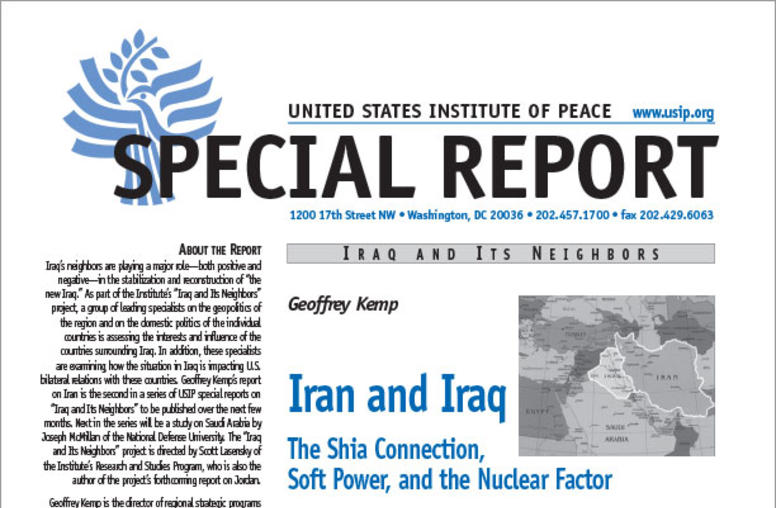
Iran and Iraq: The Shia Connection, Soft Power, and the Nuclear Factor
Summary Predominantly Shiite Iran emerges from the aftermath of Saddam Hussein's fall with considerable power and influence in Iraq as Iraqis themselves struggle to acquire a semblance of unity and forge a new political order acceptable to Iraq's three key groups: Shia, Kurds, and Sunnis. Iran's leaders meet with Iraq's most influential personality, Grand Ayatollah Ali al-Sistani; American diplomats do not meet with Sistani. Iraq's new elected leaders make visits to Tehran and negotia...
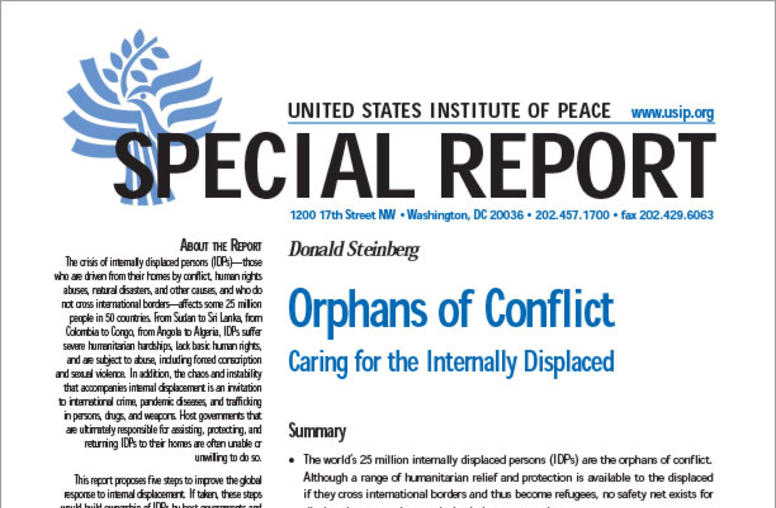
Orphans of Conflict: Caring for the Internally Displaced
This report proposes five steps to improve the global response to internal displacement. If taken, these steps would build ownership of IDPs by host governments and foreign donors, implement rules and standards governing the response, reform the response of the United Nations and the United States, and create a permanent advocacy constituency for IDPs.
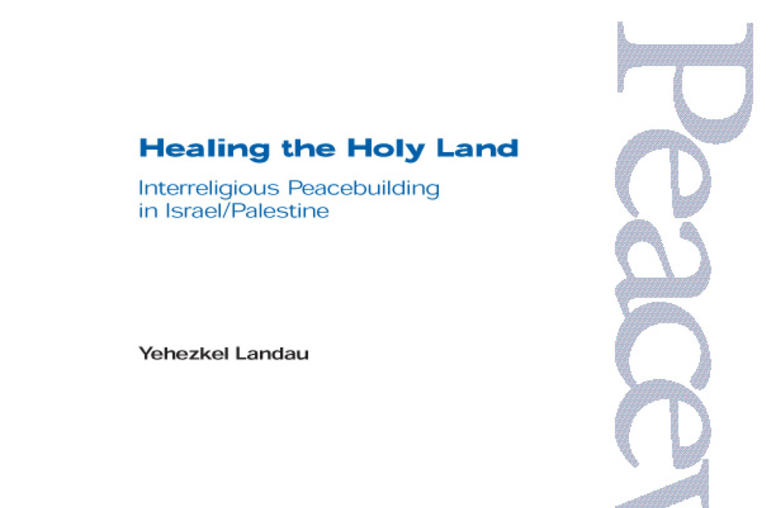
Healing the Holy Land: Interreligious Peacebuilding in Israel/Palestine
Even though the Israeli-Palestinian conflict is primarily a political dispute between two nations over a common homeland, it has religious aspects that need to be addressed in any effective peacemaking strategy. The peace agenda cannot be the monopoly of secular nationalist leaders, for such an approach guarantees that fervent religious believers on all sides will feel excluded and threatened by the diplomatic process.
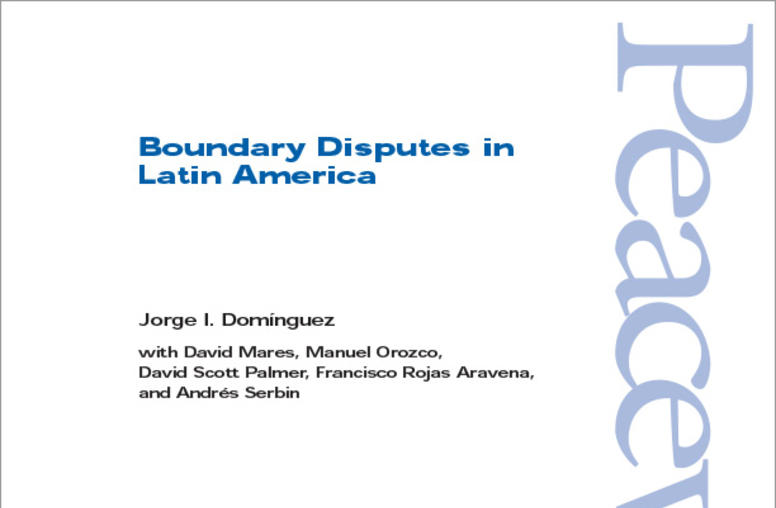
Boundary Disputes in Latin America
Since the start of 2000, five Latin American boundary disputes between neighboring states have resulted in the use of force, and two others in its deployment. These incidents involved ten of the nineteen independent countries of South and Central America.
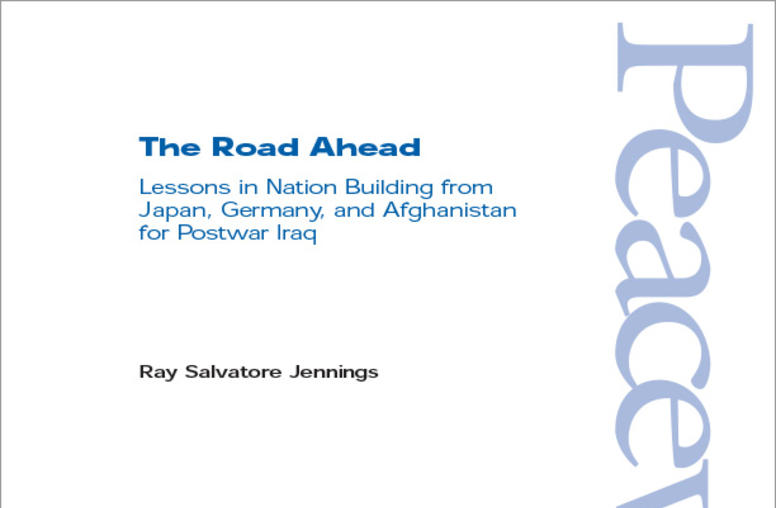
The Road Ahead: Lessons in Nation Building from Japan, Germany, and Afghanistan for Postwar Iraq
With the war in Iraq has come the responsibility to win the peace. In military campaigns, enormous resources may be marshaled at a moment's notice, including professionally trained soldiers supported by the latest technology and an intricate and elaborate global infrastructure specifically designed to fight and win wars.
The Palestinian Reform Agenda
The Oslo Accords reached by the Palestine Liberation Organization (PLO) and Israel in 1993-95 ushered into existence the Palestinian Authority and inspired efforts to build autonomous structures for Palestinian self-rule. Since the earliest days of the Palestinian Authority, a varied group of Palestinians has sought to lay the practical foundation for Palestinian statehood through the construction of strong institutions with clear (and generally liberal) legal bases.
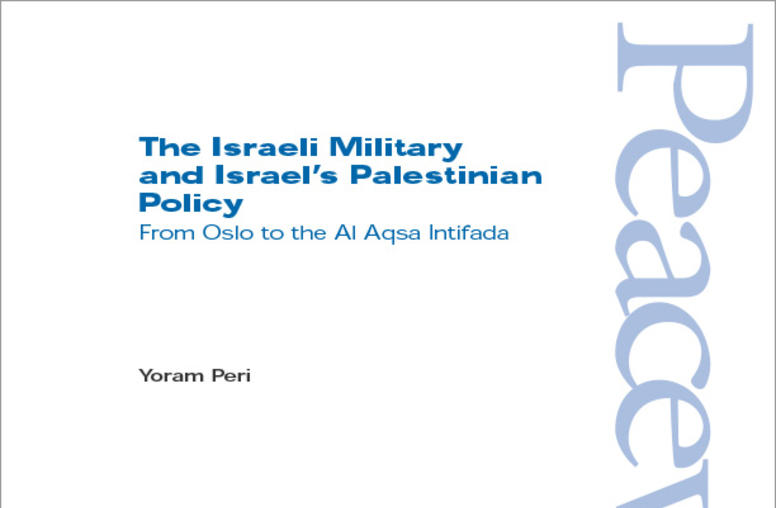
The Israeli Military and Israel's Palestinian Policy: From Oslo to the Al Aqsa Intifada
Peri’s account of Israel’s travails is the broader lesson about what can happen to a democratic political system over decades of constant warfare of greater or lesser intensity. Perhaps inevitably, military leaders, active or retired, acquire great public prominence, while civilian politicians, nominally their superiors shrink in perceived stature. In Israel it has become more and more difficult for either major political party to achieve political success without having a bevy of retired gen...
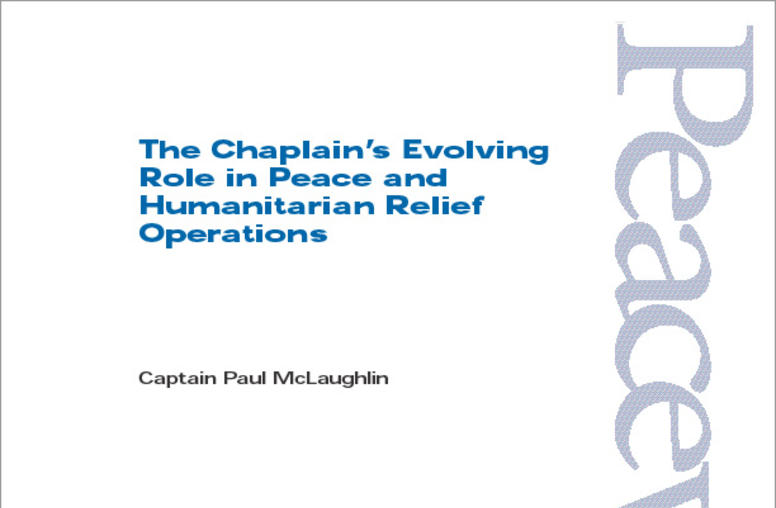
The Chaplain's Evolving Role in Peace and Humanitarian Relief Operations
To determine what role a chaplain could play in the civil-military and humanitarian assistance operations centers and teams present in an intervention, and at what point in the intervention a chaplain should be called upon to be an active participant.
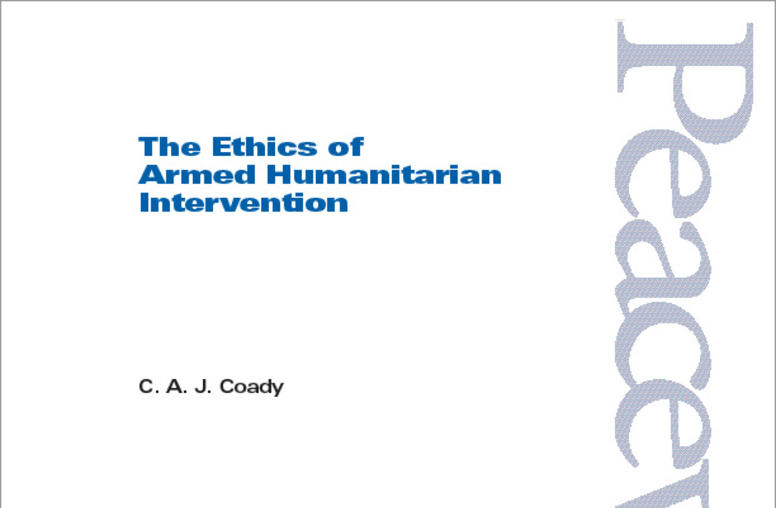
The Ethics of Armed Humanitarian Intervention
At the very beginning of the twenty-first century, two concerns ranked high on the military-political agenda of the Western world: humanitarian intervention and terrorism. This is an essay on the ethical issues surrounding the former.
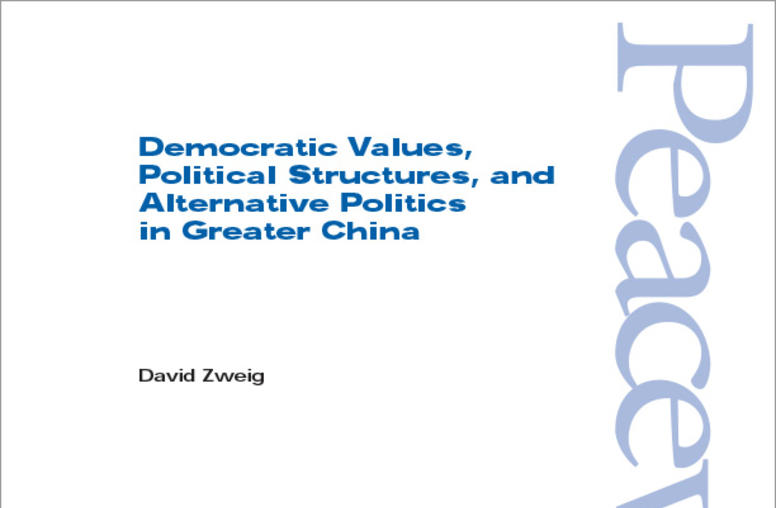
Democratic Values, Political Structures, and Alternative Politics in Greater China
This study addresses the relationship among popular attitudes toward democracy, a state's political structures--parties, elections, and the government bodies to which candidates in these societies are elected--and the ways in which people participate in politics. It argues that high levels of popular democratic consciousness and strong demands for participation, in the absence of legitimate democratic institutions, lead citizens to resort to nonformal political strategies, including civil dis...